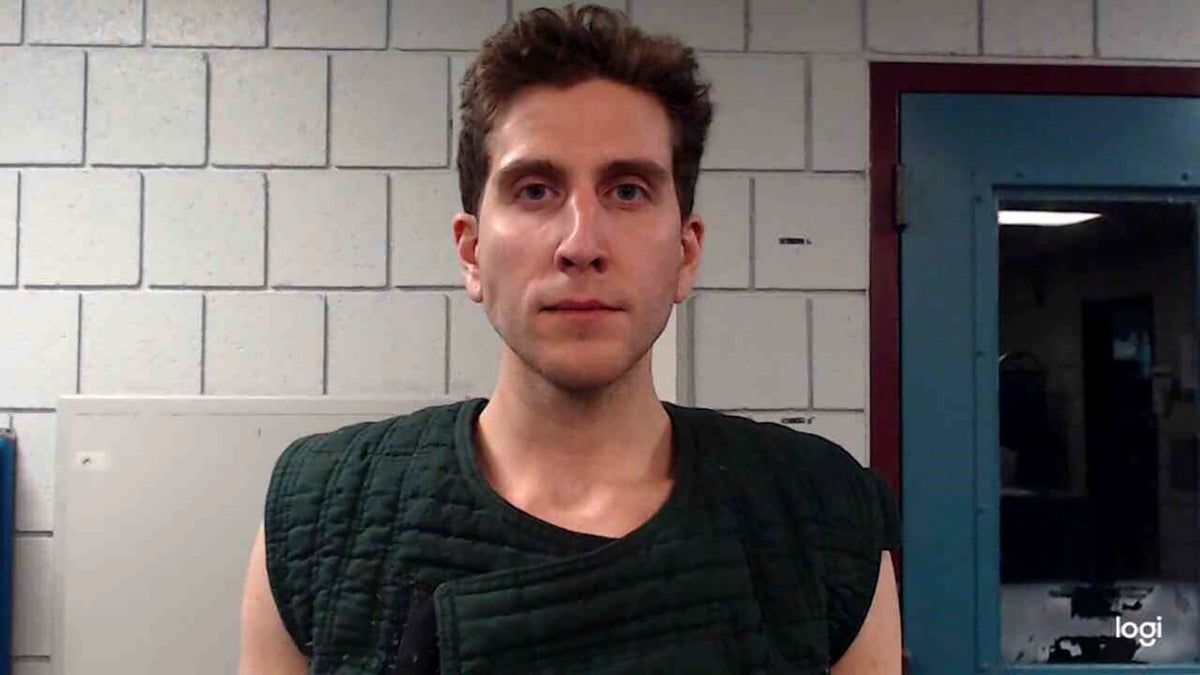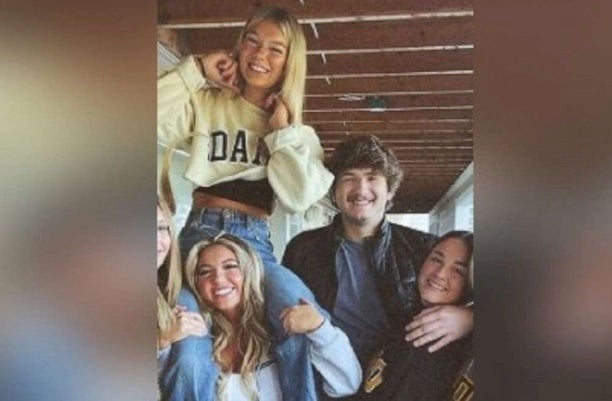
After months of cryptic statements and unanswered questions, family and friends of the four students murdered in Idaho in November have finally been given a breakthrough.
Ethan Chapin, Madison Mogen, Xana Kernodle, and Kaylee Goncalves were found dead at a house near the University of Idaho campus on Sunday 13 November, mere hours after posting smiling photographs on Instagram.
The case shocked the small college town of Moscow, Idaho, and drew media attention from across the world, yet for nearly seven weeks police did not appear to have a suspect and gave little information about what they knew.
Now a 28-year-old criminology graduate student named Bryan Christopher Kohberger has been arrested in Pennsylvania in connection with the case, offering the hope of major progress in a case that some observers feared was going cold.
So how did we get here? This is a timeline of major events as far as we know them.
Monday 22 August, 2022 – Term begins
The University of Idaho’s fall semester began on 22 August, drawing all four students back to campus.
Chapin was from Conway in northwestern Washington state, while Kernodle was from the suburbs of Phoenix in Arizona. Mogen and Goncalves were both from Idaho, near the city of Coeur d’Alene about 84 miles north of Moscow.
Mogen, Goncalves, Kernodle and two other female students lived together in a six-bedroom home off campus – the home where the murders took place. Kernodle and Chapin were dating.
“Love this place. Love this people,” Goncalves said on Instagram in October, posting a happy picture of herself. A previous post, commemorating Mogen’s 21st birthday in May, showed a timeline of the pair “growing up together”, going all the way back to their childhoods.

12 November – ‘One lucky girl’
At 8.57 local time, Goncalves posted for the last time on Instagram, including a picture of herself and all three other slain students standing together arm-in-arm on the porch of a house.
“One lucky girl to be surrounded by these people everyday,” she wrote in her caption.
Two other women are also shown in the photo, which was taken in daylight and therefore at least an hour or two beforehand.
That night, Chapin and Kernodle went to a party together on the university campus, while Mogen and Goncalves went to a bar in town.

13 November, 1.41am – Victims last seen alive in footage
In the early hours of Sunday morning, Mogen and Goncalves were seen stopping by a local food truck for a late-night bit to eat.
Twitch footage seen by The Independent captured the two best friends arriving at the food truck at around 1.41am.
An unidentified man in a hoodie was visible lingering behind them, and then at one point appearing to have a conversation – or possibly an argument – with the women, drawing scrutiny from internet sleuths. However, police ruled him out as a suspect.
Officers later said that Mogen and Goncalves “used a private party” for a ride home from the downtown area after visiting the food truck. The driver dropped them off at their home at around 1.45am.
Meanwhile, Chapin and Kernodle were seen at the Sigma Chi fraternity house, and also returned home some time after 1.45am.
The two other surviving roommates had also been out on the Saturday night and returned to the property at around 1am, police said.
Goncalves’s sister revealed that multiple calls were made from the phones of Goncalves and Mogen to the phone of Goncalves’ former longtime boyfriend between 2.26am and 2.52am.
Between the two best friends, 10 calls were made, but none were answered.
13 November, 2.44am – Suspect’s car is spotted
Not long after, according to court documents released by Latah County prosecutors, a car matching the description of Bryan Kohberger’s Hyudai sedan was recorded on surveillance cameras at Washington State University, where the 28-year-old is a crimonology graduate student.
Ten minutes later, the car was spotted heading towards SR 270, a road which connects the town of Pullman, Washington, to nearby Moscow, Idaho.
At roughly same time the sedan was likely heading towards Moscow, Mr Kohberger’s cell phone pinged off towers near the his apartment in Pullman, and later showed on cell towers in Idaho in the hours directly after murders.
13 November, 3am to 4am – Murders
Officials believe the students were killed some time between 3am and 4am on Sunday 13 November).
All four were stabbed to death with an “edged weapon such as a knife” – though the murder weapon has not been found.
There was no sign of forced entry, the door appeared to be unlocked and nothing seems to have been taken.
Few details have been released about the murders including how the assailant or assailants was able to kill all four students.
The two other roommates were home at the time of the attack but were unharmed. Police said that they were not necessarily witnesses to the incident, there was no hostage situation and they appear to have slept through the murders.
Latah County Coroner Cathy Mabbutt said the victims were “likely sleeping” when they were killed, as all four were found in bed, and were stabbed multiple times.
“I’ve been coroner for 16 years... we have had multiple [victim] murders in the past, but nothing, nothing like this,” she said.
According to the Latah County records, the car appearing to be Mr Kohberger’s vehicle was seen on various surveillance cameras near the students’ home between 3.29 and 4.20am, before appearing once again in Pullman at 5.25 near the WSU campus.
13 November, noon – Investigation begins
Law enforcement officers arrived at the house at 11.58am on Sunday after getting a 911 call from the cell phone of one of the surviving roommates (though police refused to confirm who).
Officers said that the roommates woke up on the Sunday and called some unidentified friends to the home because they believed that one of the victims on the second floor “had passed out and was not waking up”.
The four victims were discovered stabbed to death in their beds on the second and third floors of the house.
News quickly spread, with the University of Idaho puting its campus into lockdown. The “shelter in place” order was lifted around one hour later as police said the incident was “an isolated, targeted attack” posing “no imminent threat to the community at large”.
14 November – Mystery
On Monday, the Moscow Police Department named the four students, but officials gave confusing accounts of their fate.
Mr Bettge told The New York Times that he believed the killing was a “crime of passion”, and later admitted to another outlet: “We don’t really know what it was.”
Moscow Police Chief Fry said that a murder-suicide had been ruled out and that a suspect was wanted for the slayings. Yet police continued to insist that there was no ongoing threat to the public.
University classes were cancelled, while tributes poured in from the victims’ families, fellow students and members of the community.
15 November – Backlash
As the mystery deepened, Moscow residents and students began to post on social media about their dissatisfaction with the explanations coming from local officials.
Mayor Bettge further recanted his “crime of passion” remarks, while a woman claiming to be the mother of a University of Idaho senior wrote a lengthy Twitter thread that summed up the community’s fears.
“I’m not sure if people who aren’t directly tied to the University of Idaho in some way understand how little information students, parents and community members have gotten about the murder of four students in an off-campus apt two days ago,” Ms Reneau said.
Meanwhile, police revealed that the victims had been killed with a knife, saying that further information would be available following the autopsies.
16 November – Police walk back safety claims
Police held their first press conference, giving new details of the crime and walking back the idea that there was no ongoing threat to the public.
“We cannot say there’s no threat to the community and as we have stated, please stay vigilant, report any suspicious activity and be aware of your surroundings at all times,” said Chief Fry.
Family members of the victims hit out at law enforcement over their response.
“No one is in custody therefore no one is safe,” said Goncalves’ sister Autumn Goncalves. “If you have friends, family or loved ones in Moscow our family encourages you to get them home.”
Chapin’s father Jim Chapin also urged the police to release further information, saying that the silence “only fuels false rumors and innuendo in the press and social media” and “further compounds our family’s agony after our son’s murder”.
16 November – Autopsy findings released
Autopsy findings for the victims were released on Thursday, officially ruling their deaths homicides by stabbing.
Latah County Coroner Cathy Mabbutt confirmed that each victim was stabbed multiple times with a “large knife”, describing their wounds as “pretty extensive” and revealing that they bled out inside their student home.
She said the autopsies confirmed that the victims were killed “early in the morning, sometime after 2am, but still during the night” but that it was not been possible to determine from the injuries the order in which the victims were attacked.
DNA samples and nail clippings were also taken from the crime scene with the coroner saying that it is “possible” that the tests could turn up DNA from people besides the victims.
A local prosecutor revealed that investigators were exploring the possibility that more than one killer is responsible for the killings, while officers were reportedly searching for a military-style Ka-Bar knife believed to be the murder weapon.
17 November - Suspects ruled out
Police said that the two surviving roommates who were at home at the time of the attack and the man seen near Mogen and Goncalves on the food truck surveillance footage had been ruled out as suspects.
Officers also debunked rumours that the victims were bound and gagged.
20 November – Details drip out
Over the next few days, police released a slow drip of new details. Goncalves’ sister Alivea came forward with information about her phone activity on the night of the murders, while parents of the victims decried conspiracy theories from internet sleuths, saying they were harmful to the actual investigation.
Police ruled out various suspects including Goncalves’ ex-boyfriend, and explained that the victims’ housemates were asleep during thet murders.
22 November – Police rule out connection to dog attack
“Detectives are aware of a Latah County Sheriff’s Office incident of the report of a skinned dog and have determined it is unrelated to this incident,” a Moscow Police Department spokesperson told The Independent.
The clarification came after reports said that an elderly couple’s Mini Australian shepherd dog was “filleted” just three miles away from where the students were murdered.
“It was like a deer that someone had hunted,” Pam Colbert, the owner of the dog was quoted as saying to the Daily Mail.
Police also confirmed that an unharmed dog was found at the crime scene of the brutal murders of four University of Idaho students.
22 November – Did victim have a stalker?
The Moscow Police Department said it had “looked extensively” into reports that murder victim Kaylee Goncalves may have complained about a stalker, without saying what the result had been.
Meanwhile, Moscow suffered an exodus of scared students, leading the University of Idaho to provide accommodations who had left campus.
Frustration was beginning to grow with the pace of the investigation and the lack of details from authorities.
30 November – More suspects ruled out
The Moscow Police Department released a list of people they did not believe were involved in the crime, including the two living housemates, the man at the food truck, the driver who took Goncalves and Mogen home, the ex-boyfriend, and any person who was at the house when the 911 call came in.
7 December – Police seek a white car
An initial breakthrough seemed to come when police announced that they were looking for the owner and occupants of a white Hyundai Elantra that was spotted near the crime scene “in the early morning hours” on the day of the murders.
Detectives did not reveal whether the owner of the white 2011-2013 Hyundai Elantra is believed to be a suspect but said that “the occupant(s) of [the] vehicle may have critical information to share regarding this case.” The licence plate is unknown.
The car was “in the immediate area” of the rental home on King Road in the early hours of 13 November. The murders are thought to have taken place between 3am and 4am.
The development was quickly linked in online sleuth communities to body-camera footage from a separate incident on the night of the killings, which police said stemmed from an alcohol offence just before 3am.
Officials would later shut down speculation around the video, telling The Independent on 8 December that the incident on the body-camera footage was in no way connected to the murders and the white car in the background was not the same one they were seeking information about.
15 December – Two key traffic stops
As police closed in Bryan Kohberger, the graduate student made his way across the country with his father, driving from Washington to spend the holidays with family in Pennsylvania.
By then, officials later revealed, police were on to the 28-year-old, and Indiana police pulled the pair over twice during their journey.
The stops came at the request of the FBI who were seeking images of the suspect’s hands as part of the investigation into the quadruple homicide of Kaylee Goncalves, Madison Mogen, Xana Kernodle and Ethan Chapin back in Moscow, Idaho.
It is not clear why images of Mr Kohberger’s hands were important to the investigation or if the officers managed to obtain anything of interest by carrying out the stops on 15 December.
28 December – A cold case?
With few updates from Moscow police, and little public sign of any progress in the investigation, families of the students and of other unsolved murder victims feared the case might never be closed.
Meanwhile, the town of Moscow remained deeply changed by he murders, with parents and landlords installing deadbolts by the dozen and students left uneasy by the lack of answers.
30 December, early morning – Mountain raid
Finally, at around 1.30am local time on 30 December, local police and FBI swooped on a home in Albrightsville, Pennsylvania, near ski resorts in the Pocono Mountains and arrested a 28-year-old criminology graduate student named Bryan Christopher Kohberger.
According to reports, the property appeared to be Mr Kohberger’s parents’ house in a gated community. A white Hyundai Elantra was also seized.
NewsNation correspondent Brian Entin said that the suspect “asked if anyone else was arrested” and had a “quiet, blank stare”, citing inside sources.
30 December, 8am – News breaks
Later that day the Moscow Police Department and prosecutors held their first press conference since 23 November, revealing that Mr Kohberger had been charged with four counts of first degree murder.
They declined to give details on how he had come to be arrested and charged but said they still wanted to hear from members of the public who may have information about what happened.
Meanwhile, several insiders have provided crucial details to the media. One law enforcement official told CNN that Mr Kohberger was identified through genetic testing that linked DNA at the crime scene to his relatives.
Sources say authorities then confirmed that Mr Kohberger owned a white Hyundai Elantra like the one spotted near the crime scene on the night of the murders.
Investigators reportedly tracked Mr Kohberger as he drove more han 2,000 miles from Washington state to Pennsylvania, where he was surveilled for days before being taken into custody.
31 December – Charges filed
Shorly after his arrest, Mr Kohberger was charged with four counts of first-degree murder, as well as felony burglary. But the legal process didn’t end there.
3 January – Extradition rights waived
Once Mr Kohberger was arrested, the next question was how he would get back to Idaho.
He appeared in court in Pennsylvania and waived his rights to an extradition hearing, putting him on the path to be moved back to Moscow to face charges.
4 January – The suspect returns to Idaho
The following day, the 28-year-old arrived in Moscow in the late evening, where a group of officers walked the suspect into a waiting truck.
Mr Kohberger appeared to be wearing body armour as police led him into custody.
5 January – Kohberger appears in court
After weeks of investigations, police and community members alike finally got what they wanted: a suspect, in Idaho court, facing charges for the four University of Idaho murders.
Mr Kohberger appeared in a Latah County court for the first time, where he heard the charges against him, had his bail rights revoked, and faced down crying family members of his alleged slain victims.
He will appear in court again on 12 January.







